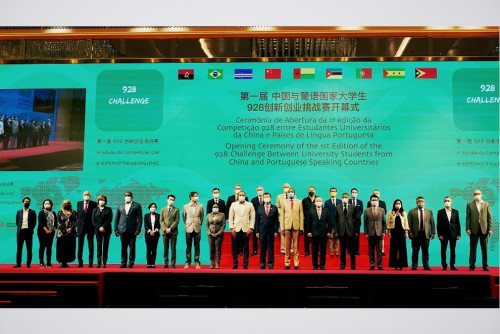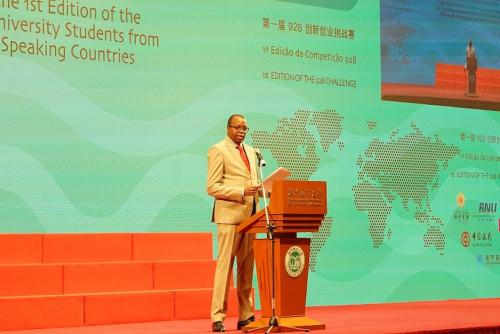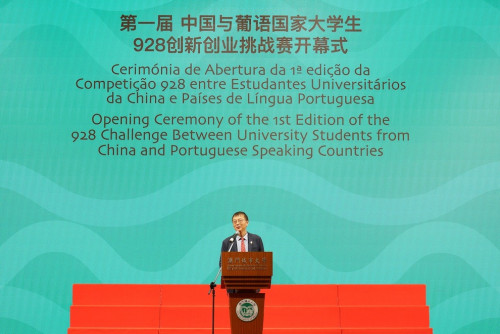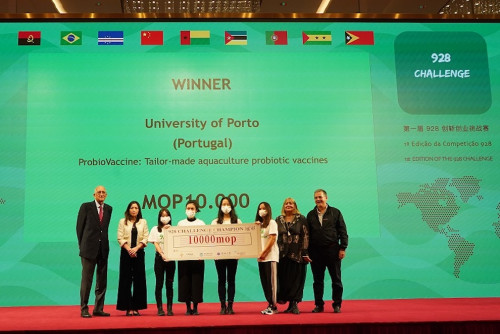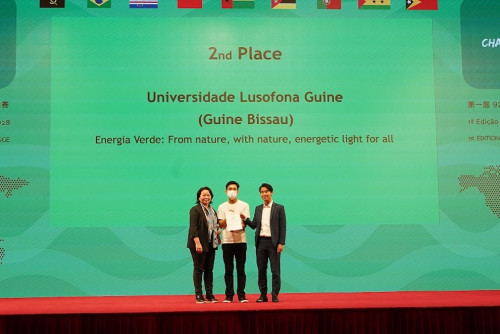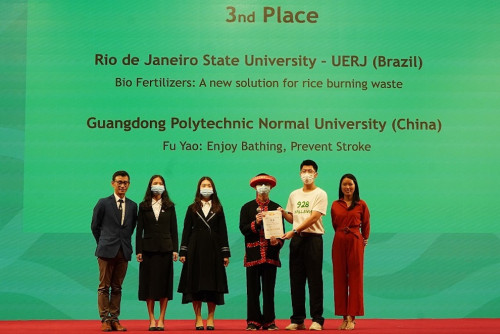The first edition of the 928 Challenge – University Competition for Students from China and Portuguese-speaking Countries, co-organised by Forum Macao, City University of Macau, Shenzhen University, and the United Nations University Institute in Macau, was held successfully in Macau on October 30.
The primary purpose of the competition was to broaden university students’ knowledge of the business opportunities offered by Macau’s role as a platform, while trying to set up entrepreneurship networks and cooperation partnerships between the nine cities and two administrative regions in the Guangdong-Hong Kong-Macau Greater Bay Area, and eight Portuguese-speaking Countries. The goal was to promote sustainable development and continuous cooperation between China and lusophone countries.
Online registration for the 928 Challenge began in September this year with close to 800 university students from China and Portuguese-speaking Countries signing up. The competition began with an online training programme to help participants find out more about the economic development and emerging business opportunities in China’s Greater Bay Area, and in lusophone countries. At the end of the programme, 89 teams put forward their business proposals. The jury and 20 mentors selected the 16 top bids for the final stage. The final was held on October 30 at the China-Portuguese-speaking Countries Commercial and Trade Service Platform Complex.
The winner of the challenge was the ProBio team from the University of Porto in Portugal. It proposed the development of an aquaculture vaccine that it said could reduce annual losses in the aquaculture industry by US$1.2 billion.
The Lusophone University of Guinea-Bissau came second, with a business idea for the development of a solar power system in the remote Gabu region.
Two teams from respectively the Guangdong Polytechnic Normal University (GPNU) in Mainland China, and the Rio de Janeiro State University, or UERJ, in Brazil, tied for third place. The GPNU team proposed a traditional Chinese medicine product for the Portuguese market, to prevent heart-related disease, lower blood pressure and improve blood circulation. The UERJ team proposed the production in China of biofertilisers from rice husk residues.
The jury stressed that all the projects that made it to the final stage could be developed further, and encouraged the respective teams to pursue their ideas. The organisers believe the challenge can help students gain a global outlook, while developing their potential as future leaders.
Deputy Secretary-General of the Permanent Secretariat of Forum Macao, Mr Paulo Jorge Rodrigues do Espírito Santo; City University of Macau Vice-Rector Mr Zhou Wanlei; the Head of Research at the United Nations University Institute in Macau, Mr Serge Stinckwich; and the representatives of the Portuguese-speaking Countries to the Secretariat of Forum Macao were among the officiating guests.




